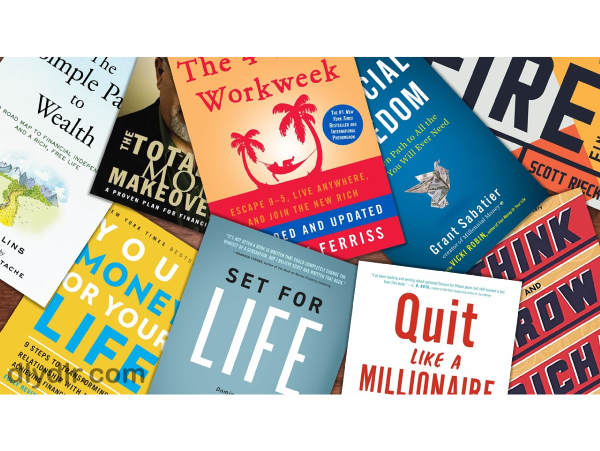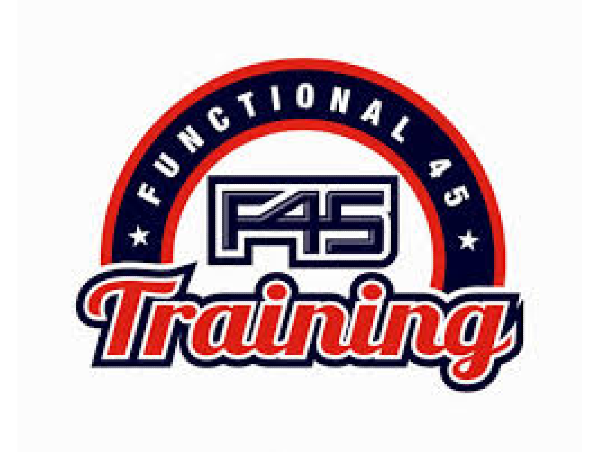People often wish they had learned to manage finances when they were younger. While they cannot go back, they can teach the younger generation and learn more at their present stage in life. Experts agree that the earlier a person knows about money, the better it is.
Bad money habits are challenging to break. Good habits set a person up for success. The same is true whether the person is managing an allowance or purchasing a home. Personal finance is seldom on the mind of young people.
How can they learn the skills they need to acquire healthy money habits? The answer books. Schools are not sufficiently educating young people about personal finance. Parents can help fill the gap. An excellent means of doing so is to introduce read-worthy books on financial topics.
The best finance books teach tweens and teens how to develop a positive relationship with money now and in the future. A group of contemporary experts writes to entertain, inspire, and inform young people about personal finance. Some of the best books about money for teens were not written with them in mind.
They were meant for young adults. The writing style and advice are also helpful for people under 20. There are also books on personal finance explicitly written for tweens and teens. Real-world examples and everyday language teach young people to set financial goals, start investing, use credit cards and bank accounts wisely, and how to save money.
It is not too late for adults. Reading books on personal finance helps anyone manage money better. They learn why it pays off to pay yourself first and how to manage and eliminate debt. People become more confident and more competent about handling money.
That's not all. You can learn how to overcome common pitfalls and foster a healthy relationship with money, save for retirement, create a nest egg, manage a mortgage, and invest. The reading for adults is not a light read, but your investment portfolio and money in your wallet increase.
Books for Young People
"Why Didn't They Teach Me This in School?" is a book written by Cary Siegel. It is a teen-friendly guide to managing money with big pictures. The book is a best seller appropriate for high school or college graduate gifts. Topics covered in the book include
- Setting financial goals
- Making a budget
- Getting the best value when purchasing
- Good investments
- Getting and staying out of debt
- Buying versus renting a home
The lessons are a crash course for sound financial decisions. It is a book that can be written from cover to cover or by specific lessons.
"The Motley Fool Investment Guide for Teens" is written by Tom and David Gardener. They are founders of the website, The Motley Fool. The book offers helpful advice for junior high and high school students in a readable and humorous style.
There are two parts to the book, The first, 'Eight Steps to Wealth,' covers spending, saving, and budgeting aspects of personal finance. 'The Search for Greatness' is the book's second part that covers investment details, such as managing a portfolio and choosing the best picks on the stock market. Its focus on financial freedom is appealing to young people. The book shows how money helps gain control over your life; something teenagers are eager to learn.
A Book for Millennials
The group of 20-somethings needs advice that is a little more substantial than that for junior high or high school kids. They can probably decipher the social media speak #GYFLT (Get Your Financial Life Together).
Erin Lowery wrote "Broke Millennials." In a conversational style, she explains how to take control of personal finance. The book covers
- Understanding your relationship with money
- Managing student loans
- Sharing finance details with a partner and more
All the significant money challenges millennials face are addressed in the book.
Books for Older Adults
Vicki Robins has sold over a million copies of her book, "Your Money or Your Life." It lays out a nine-step, easy-to-follow plan that helps people change their relationship with money. The book covers
- Getting out of debt
- Getting started investing
- Building wealth
- Saving money by practicing the author's signature mindfulness technique
Financial independence is at the core of the book. It provides a plan to achieve that goal. There is advice for every aspect of financial independence, from the necessary mindset to making investment moves. The advice is applicable whether you plan to retire early or not.
"Rich Man Poor Man" is a book by Rober Kiyosaki that has been around for over two decades. It is among the most popular books about personal finance. The author shares what he has learned from his father and a friend's father.
The friend's father is the 'Rich Man' referred to in the title. Lessons include not needing a lot of money to become rich. He discusses assets and liabilities and tells why schools do not teach kids what they should know about personal finance. In the 20th anniversary edition, the author updates topics on investing, the economy, and money.
Recap
People who lack personal finance knowledge and money management skills can get themselves in trouble. They fail to save for retirement, fall for financial scams or 'get rich quick' schemes, accumulate too much debt, or spend more than they earn.
Financial problems are fixable. Time is critical, and money is a necessity. Reading good money books teaches young and older adults how to manage money and invest wisely as soon as possible. Of the books mentionsed above, the best overall finance book is probably "Why Didn't They Teach Me This in School?" The book teaches eight essential money lessons that should be taught in high school, whether new to finance or looking for financial advice. There are also 99 principles for saving, investing and building wealth.
















People often wish they had learned to manage finances when they were younger. While they cannot go back, they can teach the younger generation and learn more at their present stage in life. Experts agree that the earlier a person knows about money, the better it is.
Bad money habits are challenging to break. Good habits set a person up for success. The same is true whether the person is managing an allowance or purchasing a home. Personal finance is seldom on the mind of young people.
How can they learn the skills they need to acquire healthy money habits? The answer books. Schools are not sufficiently educating young people about personal finance. Parents can help fill the gap. An excellent means of doing so is to introduce read-worthy books on financial topics.
The best finance books teach tweens and teens how to develop a positive relationship with money now and in the future. A group of contemporary experts writes to entertain, inspire, and inform young people about personal finance. Some of the best books about money for teens were not written with them in mind.
They were meant for young adults. The writing style and advice are also helpful for people under 20. There are also books on personal finance explicitly written for tweens and teens. Real-world examples and everyday language teach young people to set financial goals, start investing, use credit cards and bank accounts wisely, and how to save money.
It is not too late for adults. Reading books on personal finance helps anyone manage money better. They learn why it pays off to pay yourself first and how to manage and eliminate debt. People become more confident and more competent about handling money.
That's not all. You can learn how to overcome common pitfalls and foster a healthy relationship with money, save for retirement, create a nest egg, manage a mortgage, and invest. The reading for adults is not a light read, but your investment portfolio and money in your wallet increase.
Books for Young People
"Why Didn't They Teach Me This in School?" is a book written by Cary Siegel. It is a teen-friendly guide to managing money with big pictures. The book is a best seller appropriate for high school or college graduate gifts. Topics covered in the book include
The lessons are a crash course for sound financial decisions. It is a book that can be written from cover to cover or by specific lessons.
"The Motley Fool Investment Guide for Teens" is written by Tom and David Gardener. They are founders of the website, The Motley Fool. The book offers helpful advice for junior high and high school students in a readable and humorous style.
There are two parts to the book, The first, 'Eight Steps to Wealth,' covers spending, saving, and budgeting aspects of personal finance. 'The Search for Greatness' is the book's second part that covers investment details, such as managing a portfolio and choosing the best picks on the stock market. Its focus on financial freedom is appealing to young people. The book shows how money helps gain control over your life; something teenagers are eager to learn.
A Book for Millennials
The group of 20-somethings needs advice that is a little more substantial than that for junior high or high school kids. They can probably decipher the social media speak #GYFLT (Get Your Financial Life Together). Erin Lowery wrote "Broke Millennials." In a conversational style, she explains how to take control of personal finance. The book covers
All the significant money challenges millennials face are addressed in the book.
Books for Older Adults
Vicki Robins has sold over a million copies of her book, "Your Money or Your Life." It lays out a nine-step, easy-to-follow plan that helps people change their relationship with money. The book covers
Financial independence is at the core of the book. It provides a plan to achieve that goal. There is advice for every aspect of financial independence, from the necessary mindset to making investment moves. The advice is applicable whether you plan to retire early or not.
"Rich Man Poor Man" is a book by Rober Kiyosaki that has been around for over two decades. It is among the most popular books about personal finance. The author shares what he has learned from his father and a friend's father.
The friend's father is the 'Rich Man' referred to in the title. Lessons include not needing a lot of money to become rich. He discusses assets and liabilities and tells why schools do not teach kids what they should know about personal finance. In the 20th anniversary edition, the author updates topics on investing, the economy, and money.
Recap
People who lack personal finance knowledge and money management skills can get themselves in trouble. They fail to save for retirement, fall for financial scams or 'get rich quick' schemes, accumulate too much debt, or spend more than they earn.
Financial problems are fixable. Time is critical, and money is a necessity. Reading good money books teaches young and older adults how to manage money and invest wisely as soon as possible. Of the books mentionsed above, the best overall finance book is probably "Why Didn't They Teach Me This in School?" The book teaches eight essential money lessons that should be taught in high school, whether new to finance or looking for financial advice. There are also 99 principles for saving, investing and building wealth.